A Great Spiritual Vacation(in April, DDM Melbourne)
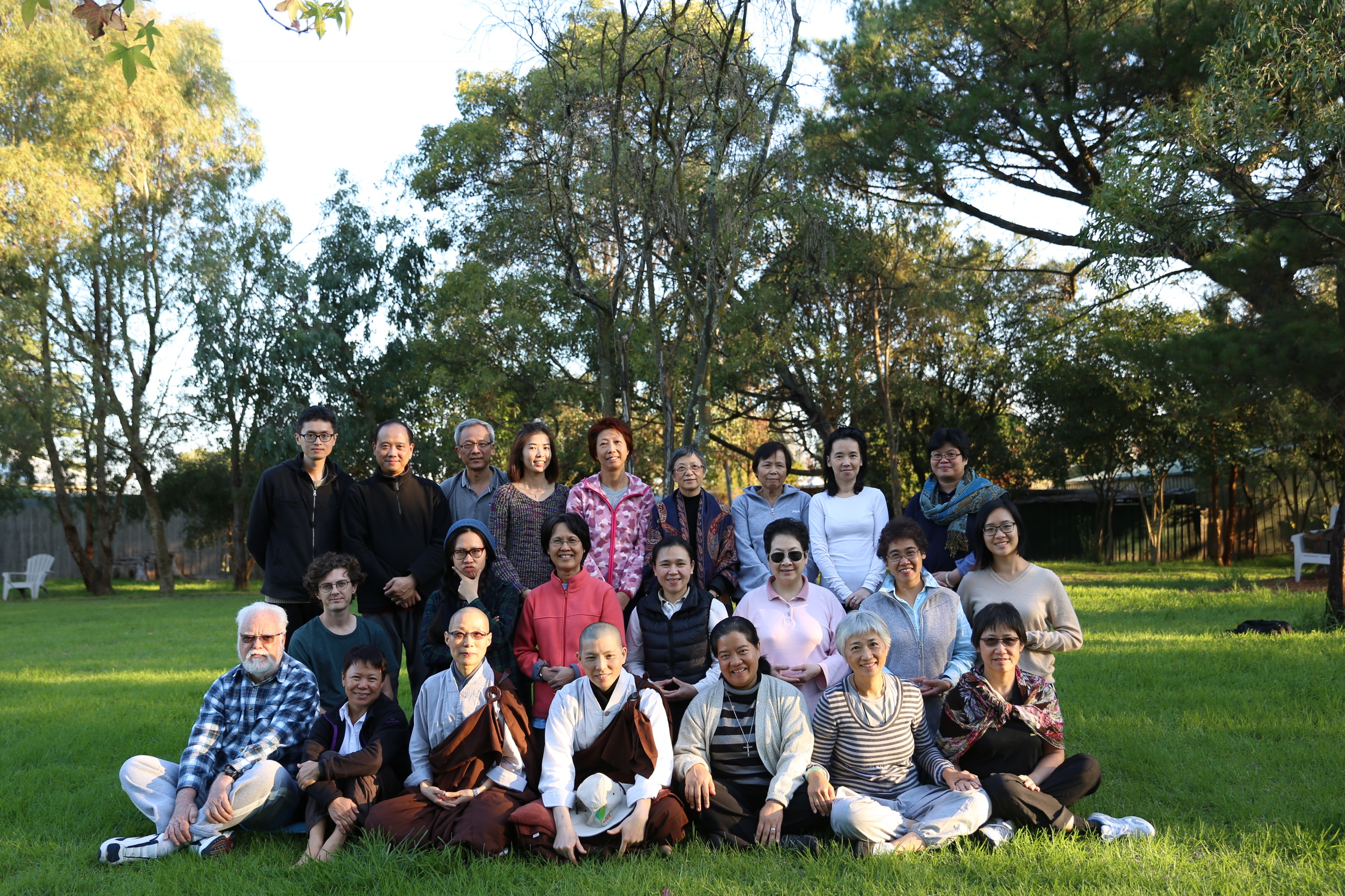
I was truly blessed again this year to be able to participate in a 5-day English meditation retreat. The retreat was led by Venerable Guo Chii and assisted by Venerable Chang Xian (Fashis) who had wisely and creatively arranged the program. We were blessed with good weather, good food and some of the best Dharma talks from Master Sheng Yen (Shifu).
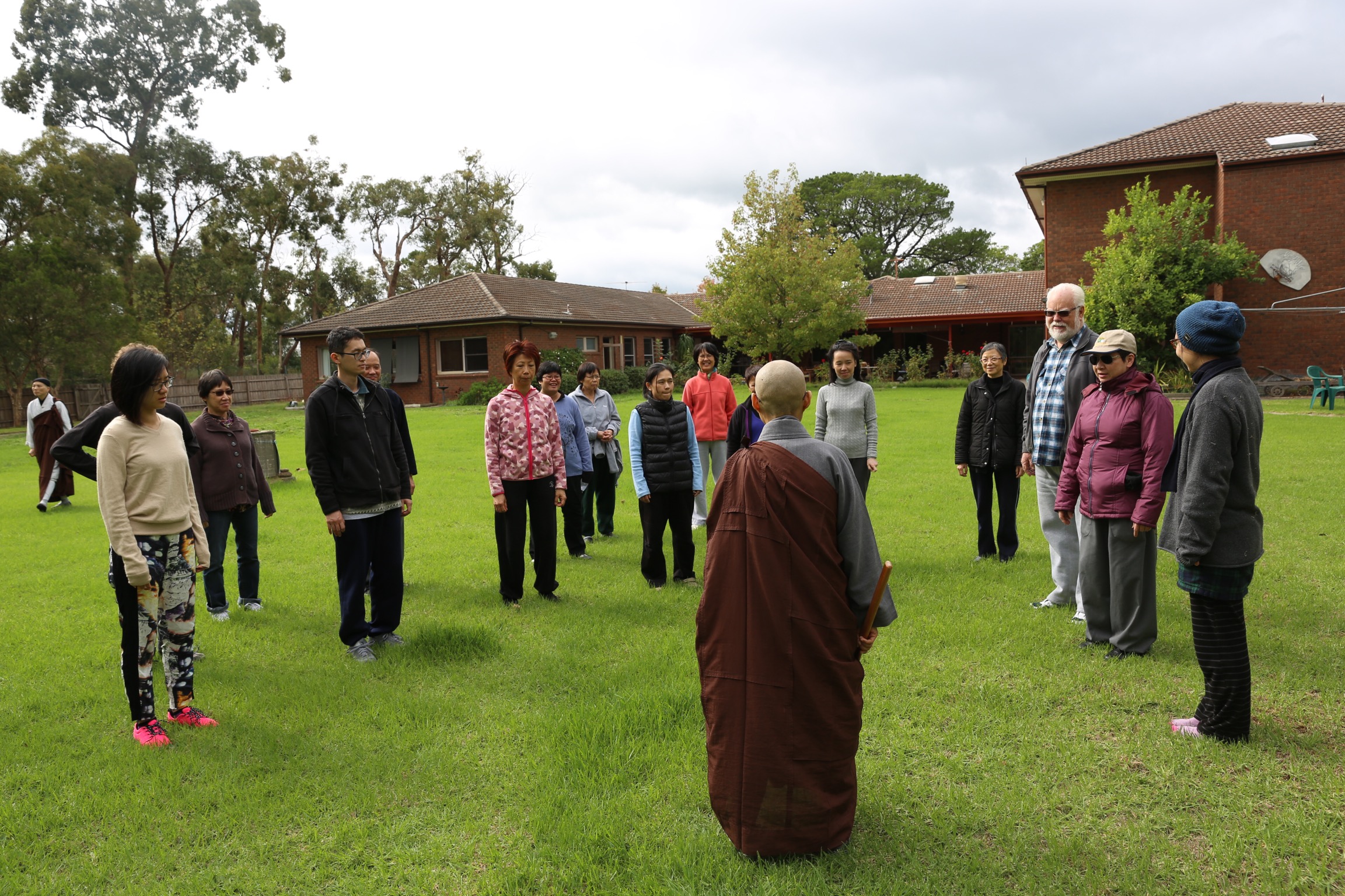
Some sessions of sitting, standing and walking meditations were held outdoors. We were also lying under the great blue sky, feeling the breeze gently touching our faces, enjoying the softness of grass and listening to the chirping of birds. We felt liberated from within and blended into nature, absorbing all the positive energy from the earth, the sun and the green. We also felt the power of noble silence, which united all of us spiritually.
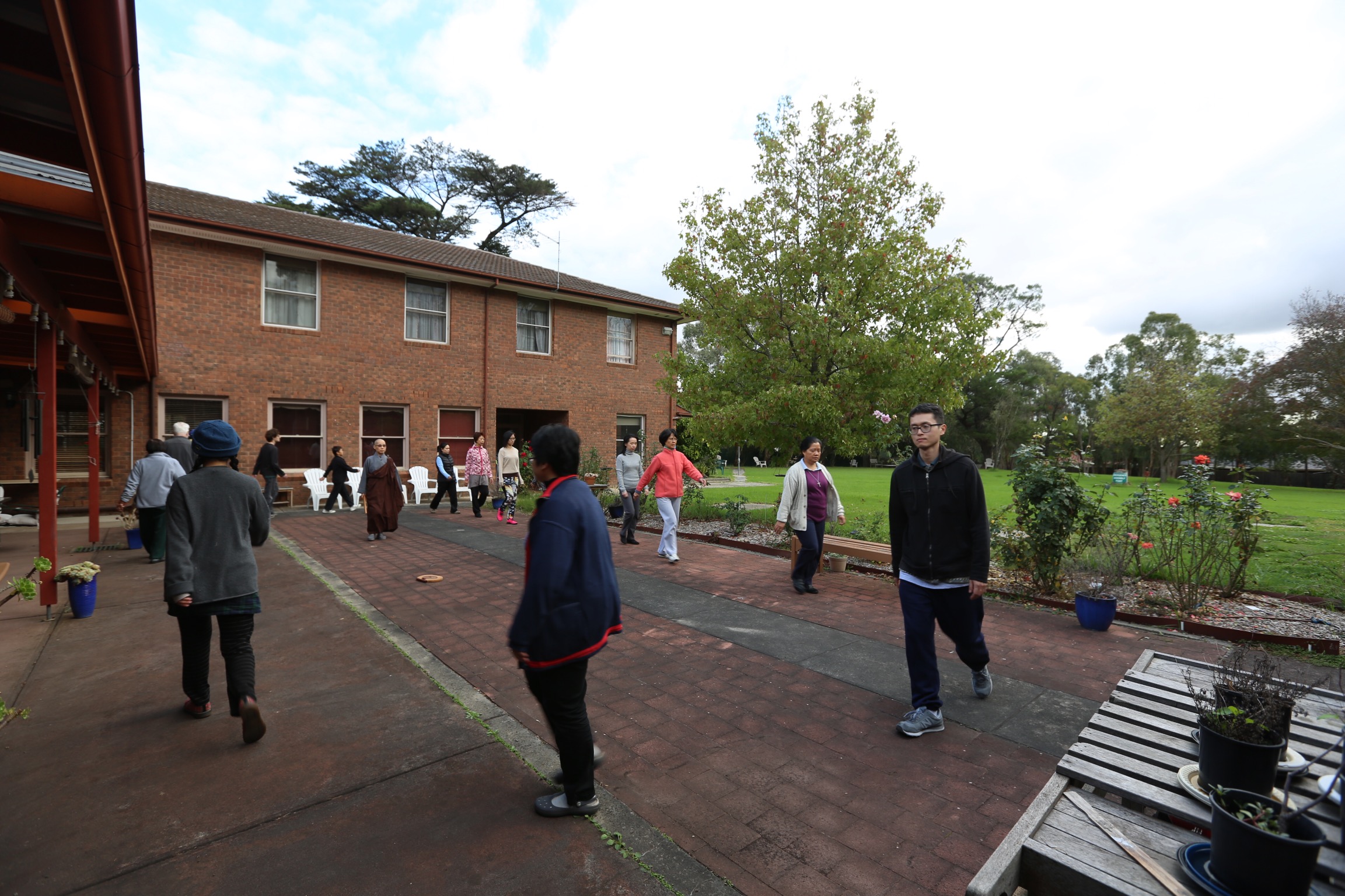
The Dharma talks from Shifu enlightened us in many ways and Dharma joys were spread. Practicing with the right view and attitudes, and generating the Bodhi mind are fundamental and should be upheld by all Chan meditation practitioners. Not many of us could sit through all the sessions without having intense pain in the legs, and yet this was actually part of the practice. What I had really learnt in this retreat was the way of dealing with sharp pain in the knees and legs when sitting cross-legged (half lotus) especially because I suffer from sciatica. Intensive sitting meditation was a great challenge.
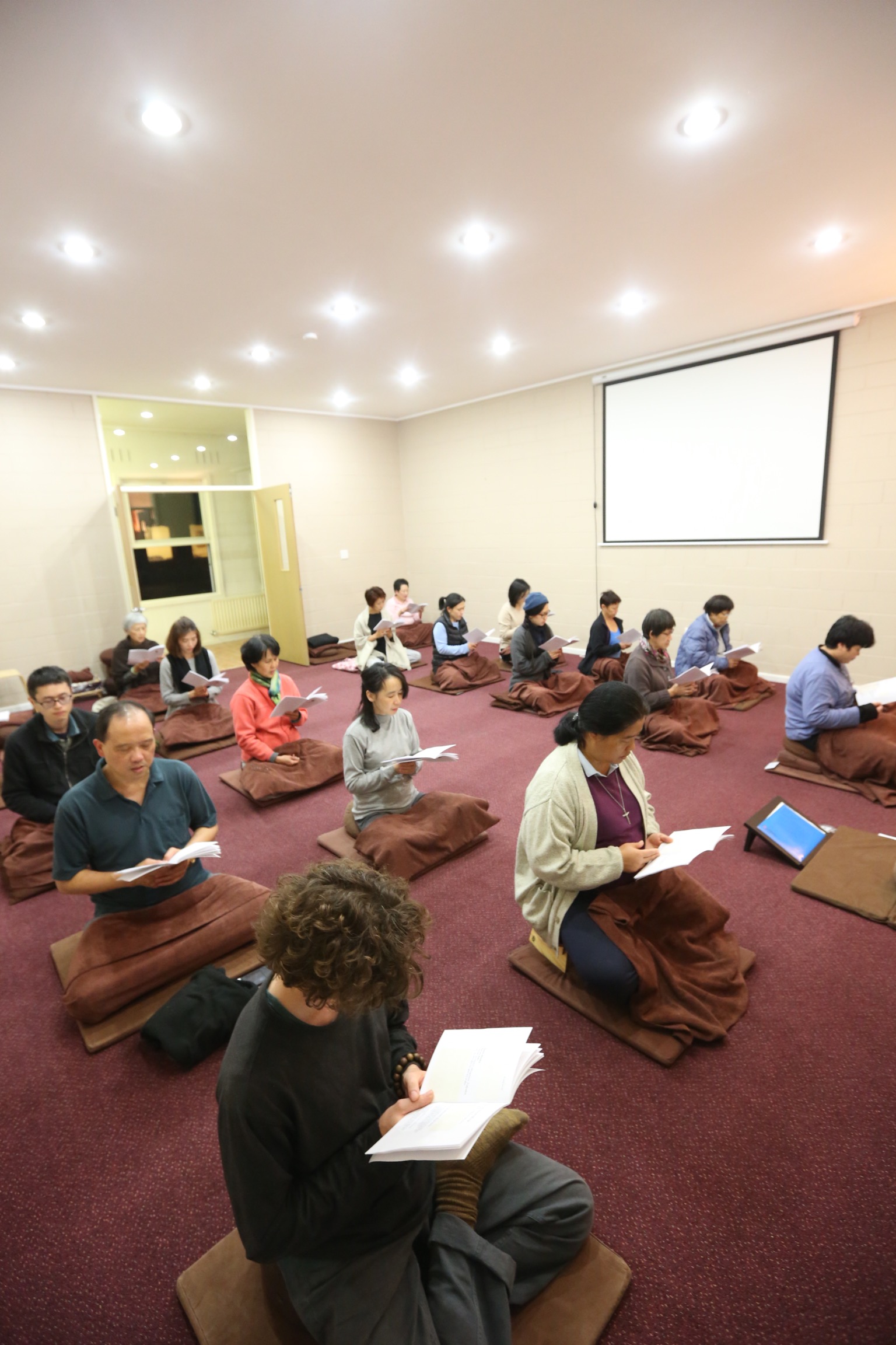
I was told to ‘experience’ the pain, feel it and live with it. It was extremely hard initially. The pain was so unbearable that I had to change my posture once or twice in a session. After a few attempts trying to experience the pain, it actually became more ‘bearable’. I managed to sit through most sessions without changing my posture. The pain in the legs and knees reminded me of the unpleasant moments in life and it dawned on me that many a time resistance and denial would not help in dealing with unpleasant moments or sufferings in life. Experiencing them without putting too much of ‘self’ may make ‘pain’ and ‘suffering’ more bearable. The concepts of impermanence, ‘no self’ and emptiness may sound hard to put into practice but are actually the principles underpinning our practice in both meditation and daily life.

If we are aware that life is impermanent, and events or occurrences are very much based on causes and conditions and hence are empty in nature, we will not dwell too much on pleasures, physical pain or vexations. After all, they are impermanent. Sufferings arise because we cling too hard to happiness and do not want it to end. Likewise, we think that unpleasant situations will last forever without realizing that nothing is permanent.
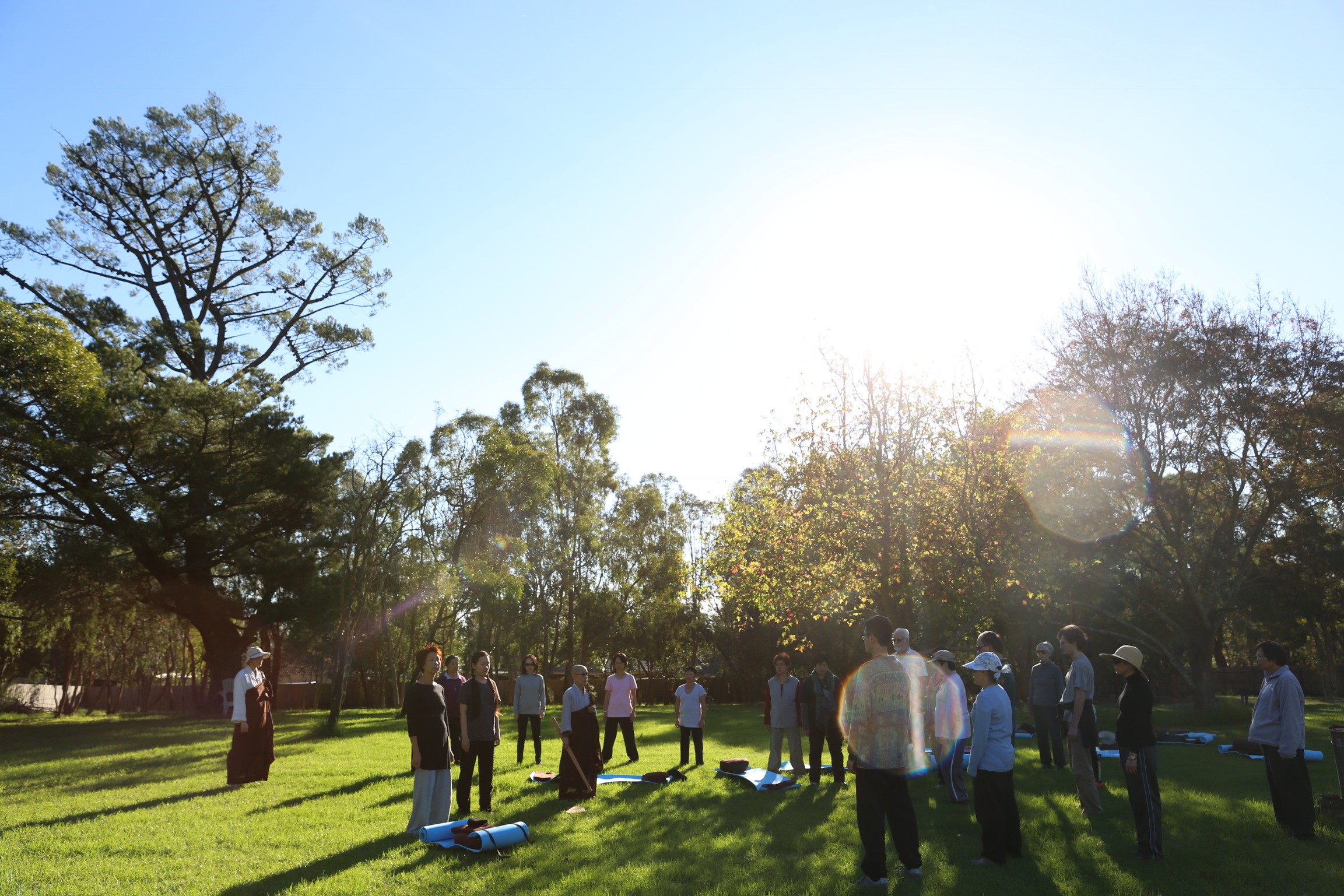
Another thing which I found beneficial in the daily life is dealing with wondering thoughts using meditation techniques. I have suffered from obsessive compulsive disorder (OCD) for a long time, with symptoms such as repeatedly checking if stoves or switches are turned off and if doors are properly locked. The level of severity fluctuates from time to time. People with OCD experiences will know that the urge of checking things repeatedly or ritually can appear too strong to be ignored. Such compulsive thoughts can haunt one in a dominant and continuous manner. Even though I am just a beginner in Chan meditation, I have gained a lot of benefits from the practice. My experience, however shallow it is, shows that Chan meditation can help one cope with OCD.
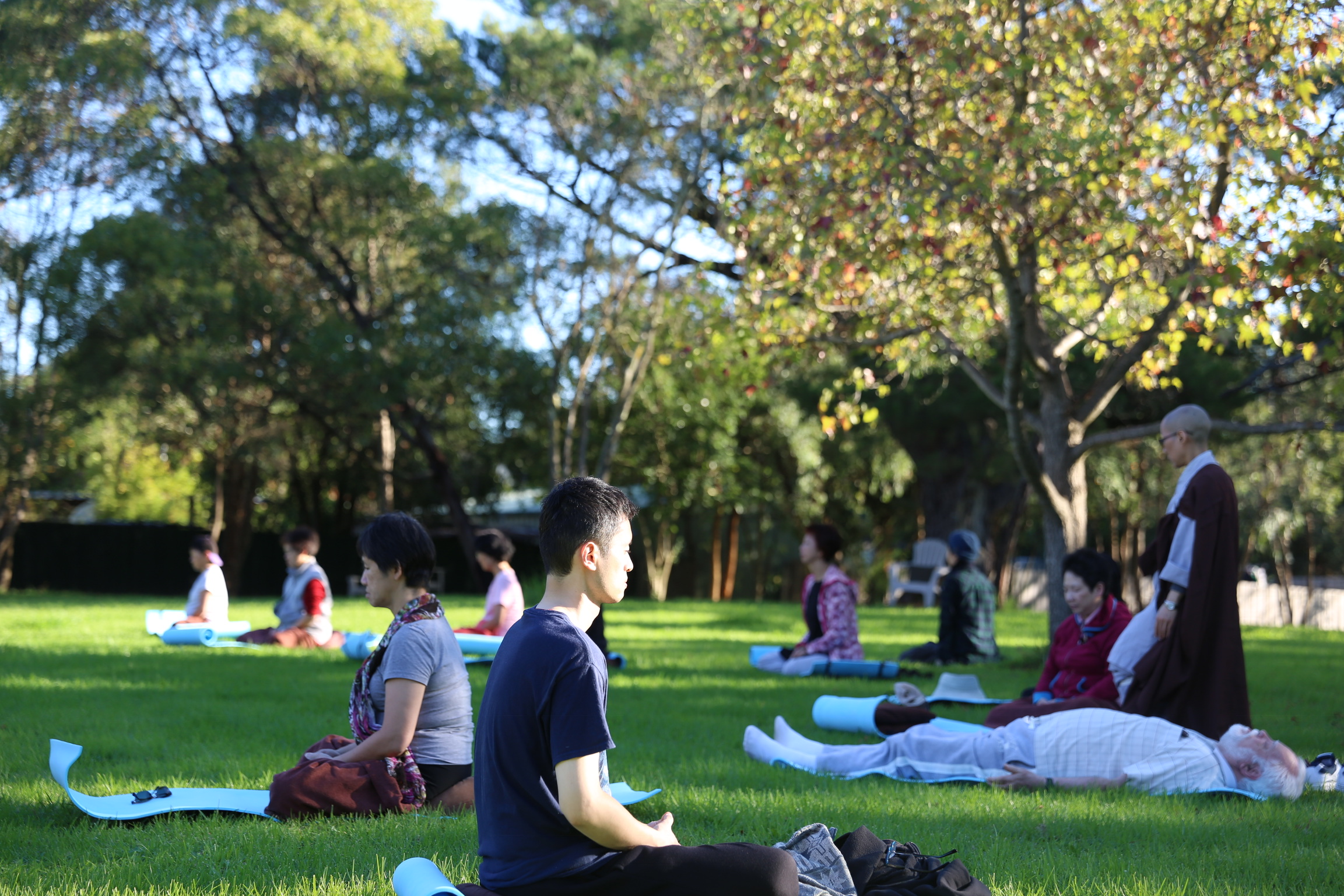
The underlying principles dealing with wondering thoughts in Chan meditation can also help one deal with the irrational urge of checking things repeatedly when such urge of checking or irrational thoughts are treated as wondering thoughts. When they arise, one can be clearly aware of their nature, ignore them, and get back to the methods of practice. OCD may not be eradicated miraculously or suddenly, but the frequency of checking may be reduced after more practice. The same goes with dealing with fear and worries. I tend to be a worry freak, thinking and worrying too much about things. Many a time, those thoughts haunt and prevent me from living in and enjoying the moments. If we just acknowledge the arising of worries and fear and treat them as wondering thoughts, we will be able to live in the present moment.

It is a blessing to have Father Nick (a Catholic priest) and Sister Elizabeth (a Catholic nun) joining us in this retreat. We were truly moved by their spirits and generosity. They did prostrations as we did, they did morning and evening services as we did, and they meditated through the five days as we did. They related Shifu’s teachings to their practice, and totally immersed themselves in it while upholding an unwavering faith in their own religion. They demonstrated how magnanimously, tolerantly and acceptingly practitioners of one faith can relate to the practice of other faiths, fostering a spirit of interfaith understanding.
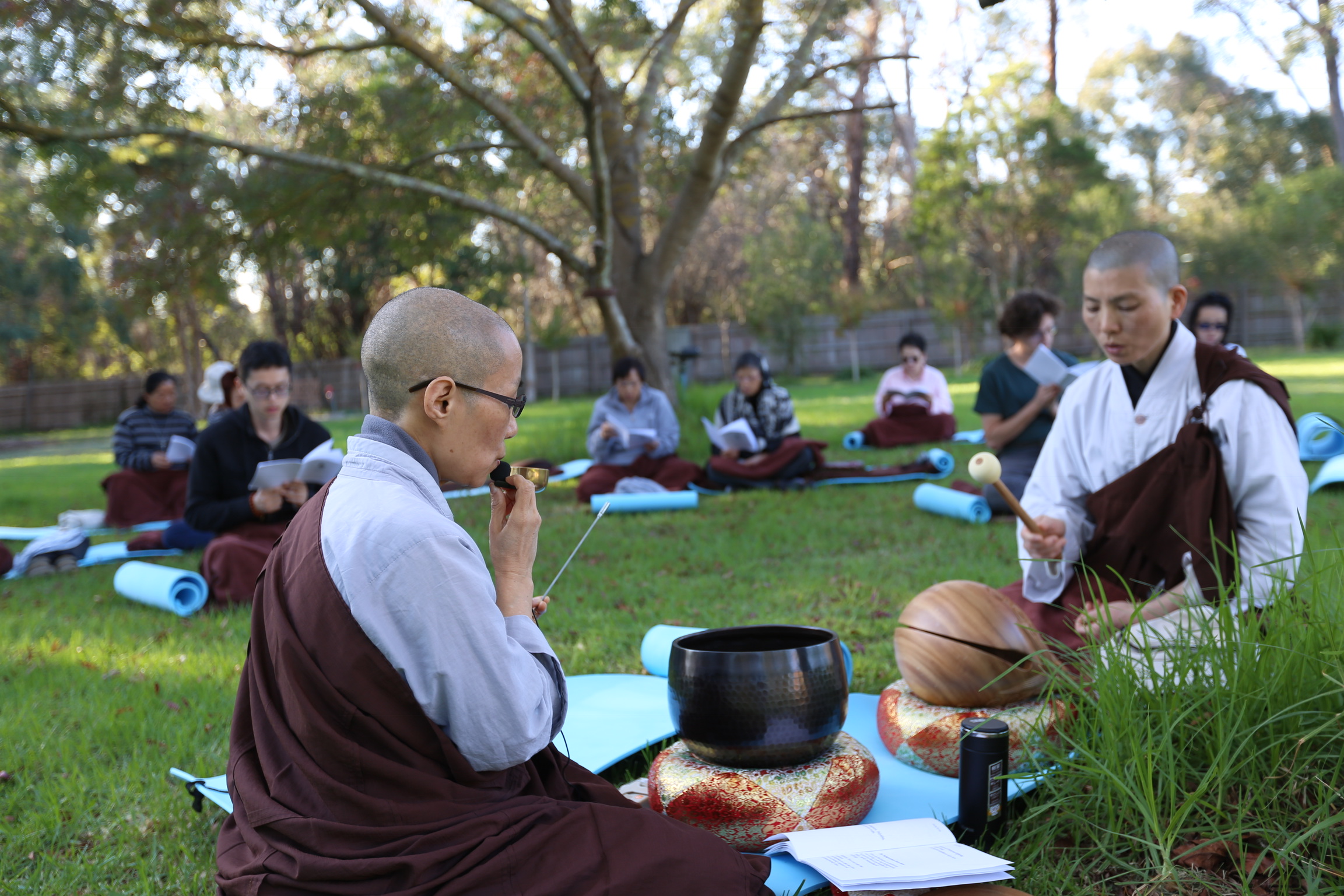
Another delightful thing in this retreat for me was to have found a way to integrate Chan meditation and pure land practice. I like chanting. However, to concentrate on reciting Amitabha’s name has not been easy as my mind drifts off easily. Through Venerable Guo Chii’s teaching, we realized that Chan meditation could fundamentally support our pure land practice.
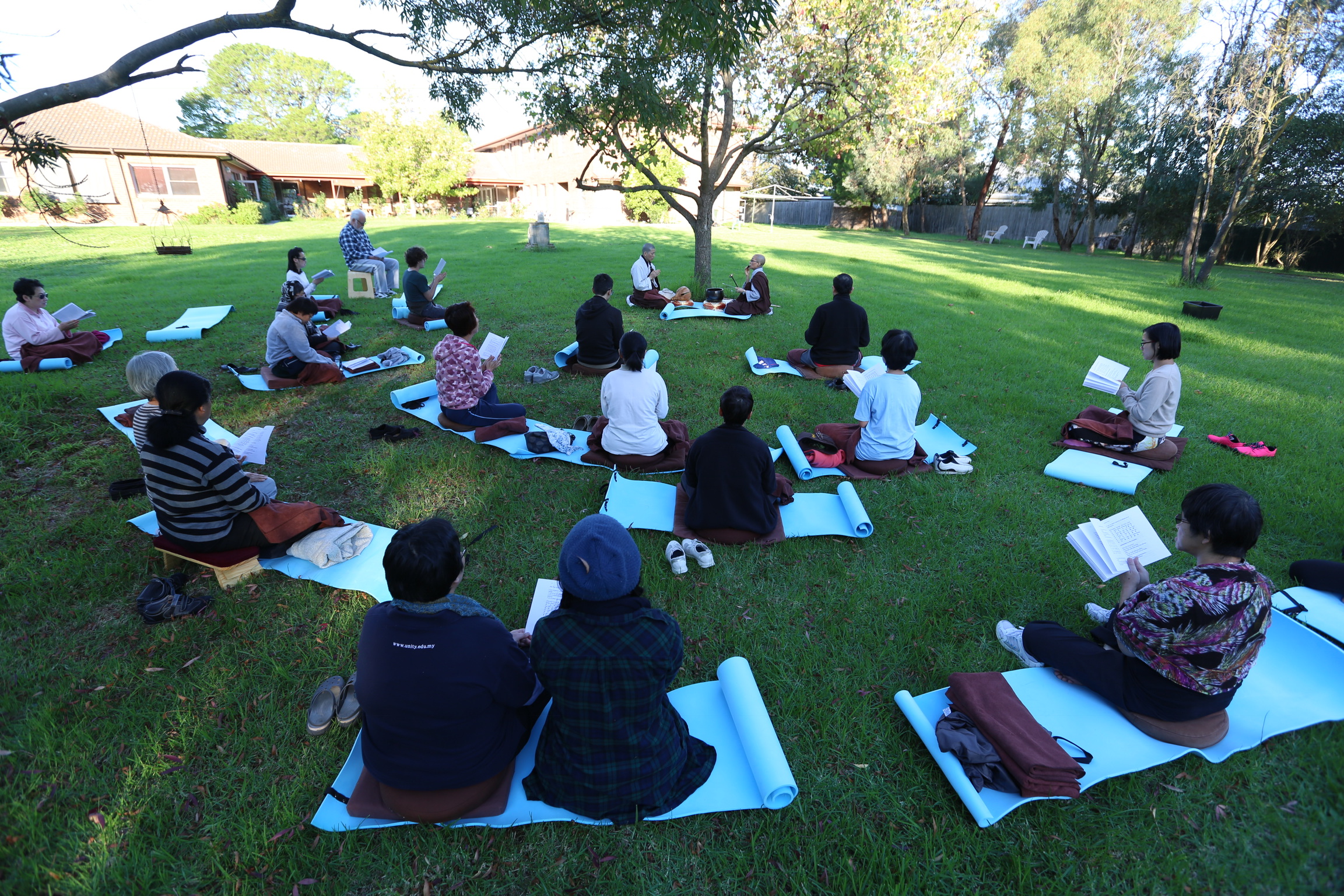
I am now back in the mundane world with endless chores. That’s when the real practice starts. Chan meditation may not miraculously solve all our problems or completely cut off our vexations in life, but it slowly and gradually transforms us into people who can handle our emotions better.
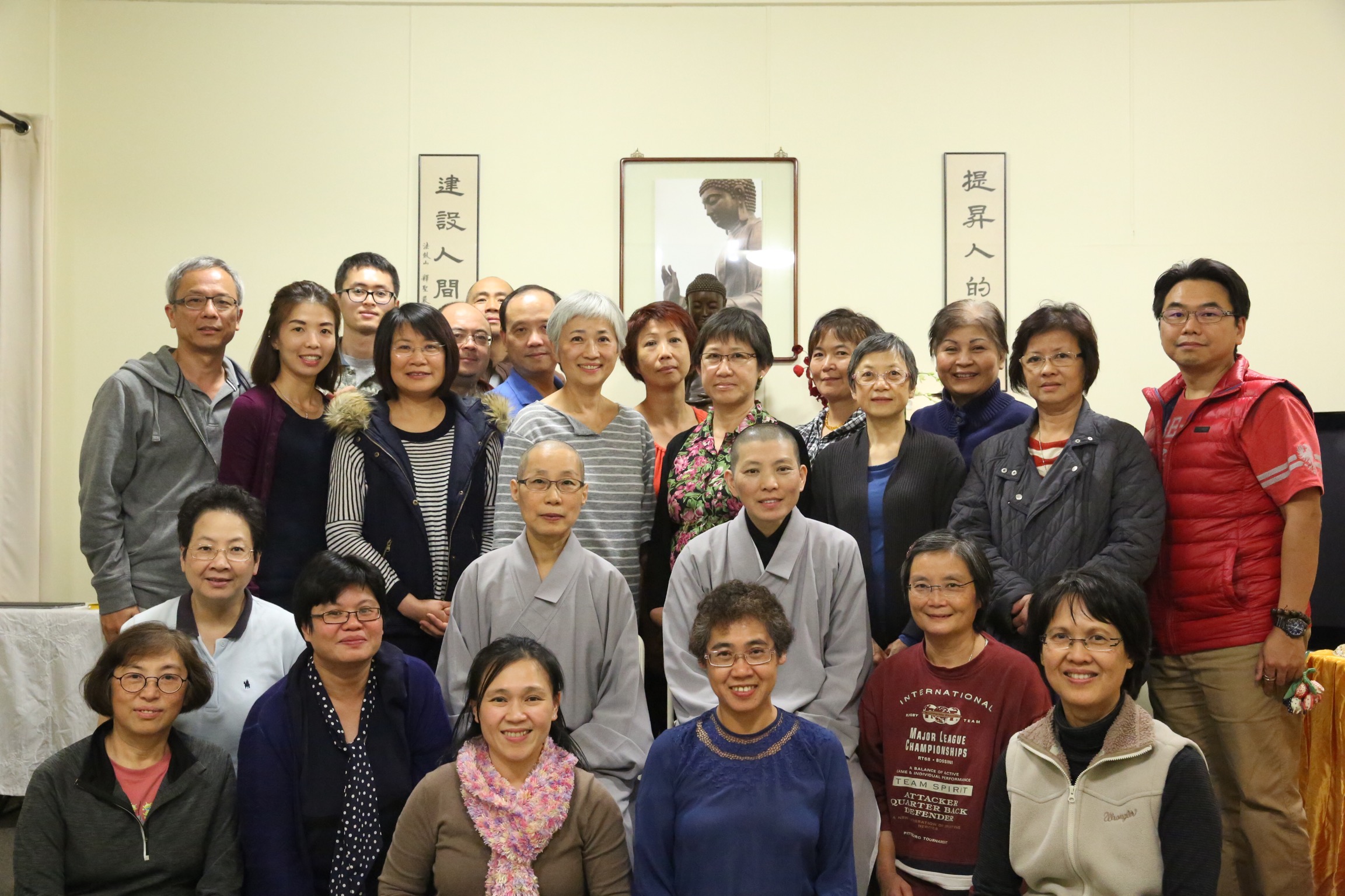
It was a great spiritual journey and we were grateful to have the two Fashis as our guides. We also thank Dharma Drum Mountain Melbourne Chapter, all the volunteers and participants for making this possible.
With joined palms,
Lilian(麗蓮)